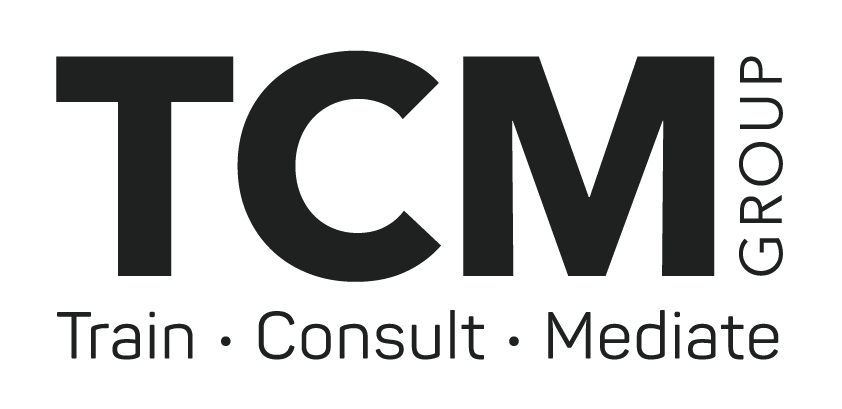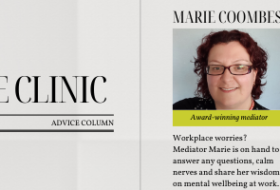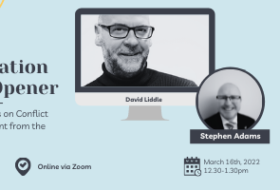“Our aim is for the resolution ethos to encourage us all to talk more openly, with trust, empathy and understanding. It’s everyone’s responsibility to help support and build an environment where it’s safe to speak up and for everyone to thrive. We all need to listen, value each other’s views and collaborate to find a way forward when we disagree.”
Kirsty Knight, Senior HR Business Partner at Nationwide Building Society
Nationwide Building Society, like many other organisations, was held back by a traditional grievance process. They embarked on a resolution journey after realising that this procedure promoted blame, division, confrontation and an immense amount of stress. It was a counterculture, running against the direction of travel that the society was leaning towards. Such a formal process wasn’t engaging employees, allowing minor issues to last for days, weeks, months and even years. Systems needed to align to values of both welcoming challenge and disagreement and also collaborating together to find a solution before allowing issues to escalate.
The importance of listening
Resolving conflict should start with listening. It’s a big transition that the Society has shifted towards over the last few years, and so it forms the basis of the future of work and supports Nationwide’s wellbeing agenda. Listening to our people, particularly throughout the experience of the pandemic, is more important than ever. That safe and open environment must be created and sustained so that everyone can feel empowered to raise issues, valued for their opinions, and respected by their peers. It needs to be constructive, compassionate and collaborative.
The business case for mediation
“I can’t stress how brilliant it’s been working with TCM on this. They’ve been an absolute joy to work with – it was a really excellent experience.”
Kirsty worked closely with Head of People and Resolution Stephen Adams to draft and design a tailored business case that would be presented to key stakeholders at Nationwide. Kirsty dreamed up her ideal future state, and Stephen worked to deploy it. Dispute resolution at the business was to:
- Promote collaborative and constructive functional conflict
- Reduce timescales and nip issues in the bud
- Improve employee engagement, dialogue
- Be future focused rather than stuck in the past
- Reduce the impact of conflict on emotional wellbeing, productivity etc.
By reinvigorating and revitalising the use of mediation to resolve complaints and concerns, it would prevent the people and culture function from becoming an authoritarian arm of leadership. People could feel empowered to solve their own issues in a way that would work for them. In turn, this would construct a happy, healthy and harmonious workplace.
The journey to resolution
In close collaboration with TCM, the transition to a Resolution Framework™ was carefully mapped out. It involved four key stages: Design, Consultation, Training and Implementation.
Design
- A Dispute Resolution Subgroup was assembled to jointly design the Resolution Framework which included Case Management, a People & Culture Policy Team, Comms, Legal, Compliance and Nationwide Group Staff Union (NGSU).
Consultation
- A joint consultation decided the structural elements of the Resolution Framework™.
- This stage proposed an approach for the implementation of Resolution Champions and on resolution policies.
Training
- This pivotal part of the process ensured that everyone involved was equipped with the relevant skills to uphold the Resolution Framework™:
- Training for the Subgroup on Routes to Resolution.
- Training for the Case Management team on the new framework.
- Resolution Champion training.
- Triage training for the Case Management team.
- Training for NGSU, whistleblowing team and employee networks.
Implement
- The new resolution approach was first piloted to two departments in Nationwide: Retail Distribution & Servicing and People & Culture.
- From April 2022, the framework will be implemented throughout the entire organisation. A detailed communications plan has been developed to signpost this.
Throughout the process, it was integral to engage unions and stakeholders from the offset in order to ensure engagement, dedication and cooperation. It was also important to protect the work of the NGSU, who exist to provide members with support, guidance and advice.
Committing to the future
By coming up with clear roles, responsibilities and routes to resolution, Nationwide has proven that mediation is here to stay. The comprehensive communication and engagement plan will kick off in March 2022, presenting a joint statement from unions and leadership that shows a declaration of collaboration and commitment from each facet of the organisation. Following the piloted scheme, a full Society rollout will commence in April 2022. From this point onwards, the Nationwide Grievance Policy and Bullying & Harassment Policy will be replaced by the Resolution Framework™. This symbolises a shredding of counterculture, blame and division. With the adoption of restorative resolution, people continue to be placed at the heart of everything Nationwide Building Society does.
If you missed the webinar and you’d like to catch up, you can watch the full recording below:
If you’re interested in implementing a Resolution Framework™ within your own organisation, you can contact our Head of People and Resolution Stephen Adams directly.
If you’d like to learn more about resolution, you can join our Routes to Resolution open access training course here. The next one is being held 26th-27th May 2022.
Robyn Marsh: Senior Communications Executive at The TCM Group
About the author
Robyn Marsh is Senior Communications Executive at The TCM Group (Train. Consult. Mediate.)
If you would like to discuss Robyn’s post in more detail, please contact her at [email protected]








